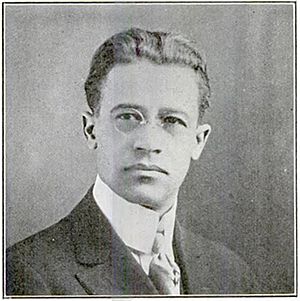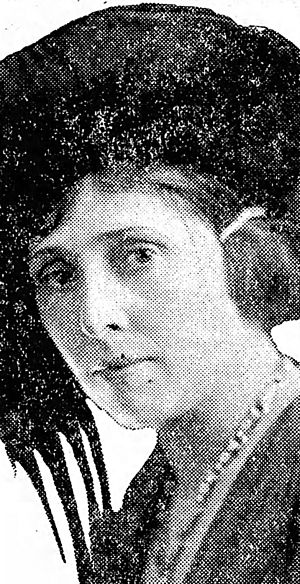William T. Francis facts for kids
Quick facts for kids
William T. Francis
|
|
|---|---|

William T. Francis, ca 1904
|
|
| Born | March 26, 1870 |
| Died | 15 July 1929 (aged 59) |
| Nationality | American |
| Occupation | Lawyer, Politician, Diplomat |
| Known for | U.S. Minister/Consul General to Liberia |
| Political party | Republican |
William T. Francis (March 26, 1870 – July 15, 1929) was an American lawyer, politician, and diplomat from Minnesota. He worked hard for civil rights. He won cases against unfair treatment by police and employers. He also helped pass state laws against discrimination and unfair violence.
Later, he became the U.S. Minister to Liberia. This made him the first African-American diplomat from Minnesota. In Liberia, Francis investigated claims that the government was involved in forced labor. He died there from yellow fever. His report led to a League of Nations investigation. This investigation eventually caused Liberia's president and vice president to resign in 1930.
Contents
Early Life and Education
William T. Francis was born in Indianapolis, Indiana, on March 26, 1870. He moved to St. Paul, Minnesota, in 1887. He started working for the Northern Pacific Railway. He began as a messenger, then became a stenographer, and later a clerk.
In 1901, he became the temporary chief clerk in the legal department. While working, he studied law at the William Mitchell College of Law. He earned his law degree in 1904.
Law Career and Fighting for Rights
After getting his degree, Francis became the chief clerk of the Northern Pacific's legal department. This was a very high position for an African-American at that time. He also started his own private law practice.
In 1912, he took over the law firm of his friend, Frederick McGhee, after McGhee passed away. Francis handled many different types of cases. He was especially known for taking on cases about racial discrimination and civil rights. He helped people who were treated unfairly because of their race. For example, he challenged police who held Black women without charges. He also fought against businesses that refused to serve people based on their race.
Political Work and Diplomacy
Francis was a member of the Republican Party. He supported civil rights groups like the National Afro-American Council. In 1915, he worked to ban the movie The Birth of a Nation in St. Paul. He felt the movie was very racist.
In 1920, Francis was appointed to the Minnesota Republican Central Committee. Around this time, his wife, Nellie Francis, helped women gain the right to vote. She also wrote a state law against unfair violence after a sad event in Duluth in 1920. William Francis supported his wife in getting this important law passed in 1921. He also helped pass a law against racial discrimination in hairdressing schools.
Serving as a Diplomat in Liberia
On July 9, 1927, President Calvin Coolidge appointed William Francis as the U.S. Minister to Liberia. This was a very important diplomatic role. He moved to Liberia for this job.
In 1928, the Secretary of State asked Francis to investigate serious rumors. These rumors said that the Liberian government was involved in forced labor. This meant people were being made to work against their will. Francis spent nine months looking into these claims. He found that government officials, including the president, were making money from this unfair practice. Young men were being forced to leave Liberia to work on plantations on Bioko Island.
Francis died in Liberia on July 15, 1929, after becoming ill with yellow fever. His important report helped make sure there was a full investigation by the League of Nations. This investigation led to the president and vice president of Liberia resigning in 1930.
Family Life
William Francis married Nellie Griswold Francis on August 14, 1893. Nellie was also a very active person. She was a leader in the movement for women's right to vote and a community activist. They had a very happy marriage.
The Francises were members of Pilgrim Baptist Church. Both William and Nellie were singers there. William also enjoyed acting in plays and musicals.
In 1924, the couple bought a house in St. Paul. Some white residents in the neighborhood did not want them there. They faced threats and protests. People marched outside their home and sent threatening letters. Two burning crosses were even placed on their lawn. Despite these challenges, the Francises stayed in their home until they moved to Liberia.
William T. Francis was buried in Greenwood Cemetery in Nashville, Tennessee. His life showed his dedication to justice and equality.
Images for kids
 | Lonnie Johnson |
 | Granville Woods |
 | Lewis Howard Latimer |
 | James West |



